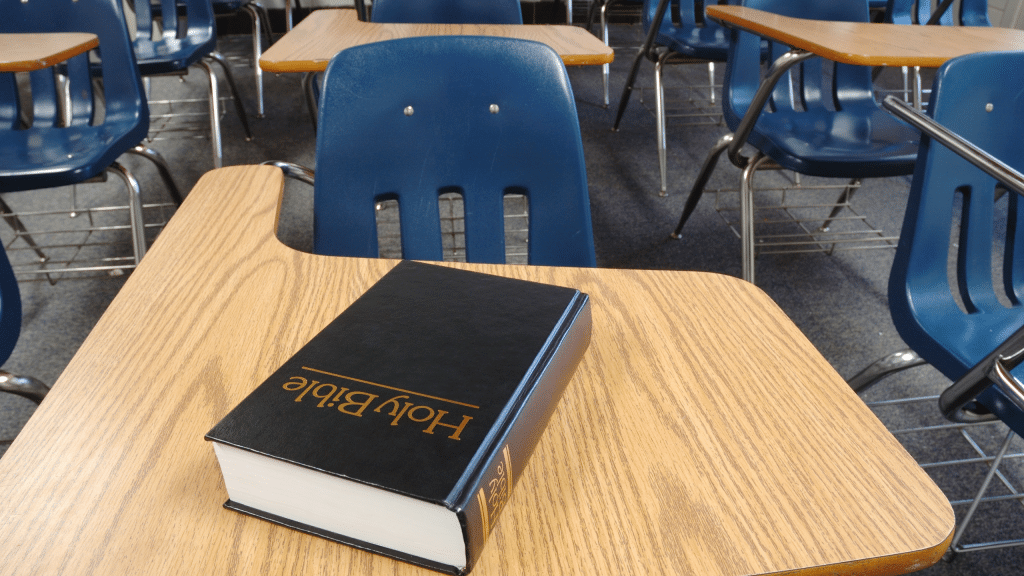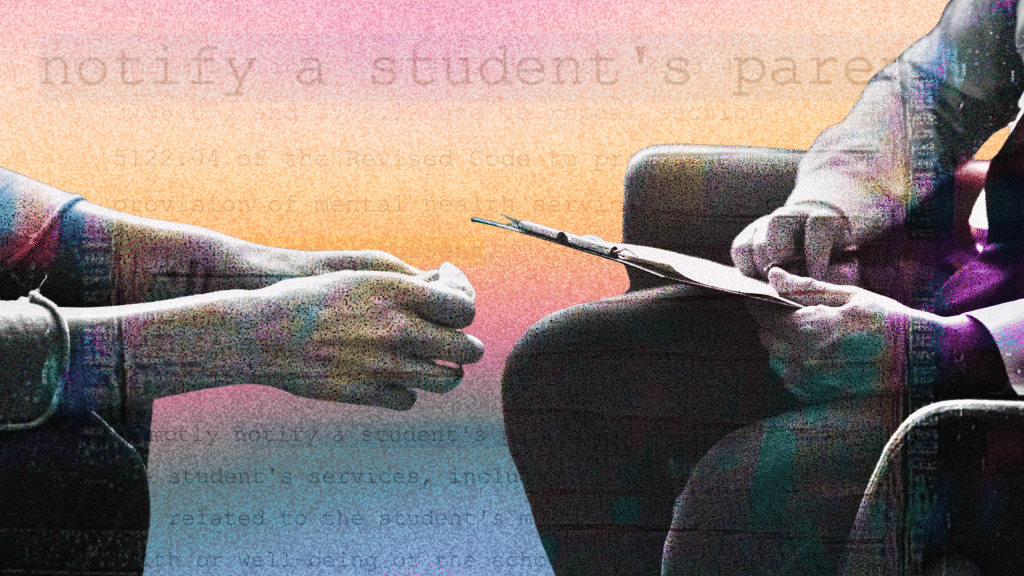Ohio Republicans have introduced a bill to allow public schools to “engage volunteer chaplains to provide support services,” but without defining those support services in any way.
HB531 The (“School Chaplains Act”) was introduced in the Ohio House of Representatives on Tuesday and referred to the House Education Committee on Wednesday. The bill is co-sponsored by Reps. Kevin Ritter (R-Marietta), co-founder of a private Christian school in the Mid-Ohio Valley, and Jonathan Newman (R-Troy), a megachurch pastor.
Although the draft law is similar to the one introduced in 2023 at the previous General Assembly (HB240) to allow public schools to employ chaplains in public schools, the bill introduced this week has several key differences:
- Unlike the 2023 bill, HB 531 only allows a public school to employ a chaplain to serve as volunteernot as an employee.
- HB 531 provides a definition of “chaplain” that was never provided for in the previous bill: “a religious professional who has received the endorsement or certification of a recognized ecclesiastical endorsing agency and who provides spiritual programming, support, and counseling outside the traditional church setting.”
- HB 531 forces all Ohio school districts to vote by December 1, 2026 on whether their schools will accept a volunteer chaplain.
- HB 531 allows students to “participate in supports, programs, or services provided by a chaplain during school hours” with parental consent.

Both bills provide that chaplain services may be offered in addition to, but not in place of, school counselor services. Both draft laws require volunteer chaplains to check their criminal records.
A key element missing from the current bill: any definition of the supports, programs or services that a chaplain can provide in public schools. Currently, the bill does not specify how chaplains can contact students, including whether they can meet with students individually behind closed doors.
“Unregulated clergy”
The bill and its lack of details were met with quick reaction from both faith and education advocates.
The Rev. Dr. Ben Huelskamp, executive director of an LGBTQ+ Christian nonprofit in Ohio I LOVEBoldlystated that HB 531 takes a petite step towards improving the previous bill, but assumes the introduction of chaplains to public schools.
“The bill does not specify what services chaplains will provide, how they will be limited from proselytizing, how they will interact with students from other religious traditions (particularly in rural districts where chaplains will be largely Christian), or how chaplains could bring their own moral and ethical judgments to their work against queers and others already marginalized students,” said Huelskamp, who also serves on the board of The Buckeye Flame. “Instead of addressing the shortage of school counselors in Ohio schools, HB 531 represents the use of an existing problem to bring unregulated clergy into public schools.”
Dr. Christina Collins, Executive Director Fairness for Education in Ohioa nonpartisan statewide organization, said it was “another way to force religion into life [public] schools.”
She also highlighted the shortage of school counselors in Ohio.
“According to the American School Counselor Association, Ohio has a 2022-2023 student-to-counselor ratio of 403:1; the recommended ratio is much lower at 250:1; yet because our state refuses to adequately fund public education, schools lack the resources to address the serious mental health issues our children face,” she said Collins.
Collins said allowing chaplains, who may lack appropriate training, to work with youth could make the situation worse, depending on the chaplains’ actions, especially since their “services” are not defined in the bill.
“For example, what will chaplains talk to students about?” Collins asked. “What topics will they be able to cover? Will they provide religious advice on sex and sexuality? Will they be able to use anti-LGBTQ+ rhetoric? Will they provide advice on sensitive topics like harassment that really should be handled by a licensed mental health professional? Will they be mandatory reporters?”
Collins said that if these questions cannot be answered, “this bill will simply remain too risky for our children.”
Similar bills have been passed in Texas and Florida have been introduced in 12 other states. 🔥
START ACTION
- You can find the makeup of the House Education Committee Here.
- Buckeye Flame Ohio’s 2025 LGBTQ+ Legislation Guide can be found here.
- To register to vote or check your eligibility to vote in Ohio, click here.
- To find the contact information for your Ohio State Representative, click here.


